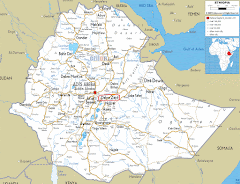- God, why I not understand my learning? God, open my brain.
- Why people have different colors? Why you made me black?
- God, why people hate each other?
- Why God doesn’t stop the conflict of Ethiopia? Why God doesn’t give love and unity for our country?
- God, can you give me a wife?
- Why did my father die in his young age?
- Why do you refuse wealth to our country Ethiopia?
- God, what do you want from all human beings?
Those are questions to God that my students wrote in one of their journal assignments. I must admit, I have many questions of my own:
- Why is there no clinic at MKS to help students with medical problems?
- Why can’t the MKS toilets be fixed so they don’t run all the time?
- How do I respond when a student asks for financial help?
- How is it possible that some students cannot afford a pen, a notebook, or soap (let alone tuition)?
- When will English teachers in Ethiopia help students use English rather than learn about English?
- Why I am always so cold, even in Ethiopia?
- God, what do you want from me?
While I ponder these questions, I feel grateful for the opportunities I had in Ethiopia:
- To live a simple life on the MKS campus
- To learn a new language and experience a new culture—a new way of thinking and being
- To make new friends
- To visit people in their homes—for coffee, food, conversations, prayer, and overnight stays
- To visit churches and experience different ways of expressing faith in God
- To join the MKS community of faith as they strive to follow God
- To teach full-time again after a hiatus during the pandemic
- To use my gifts and impact not only individual students but also an institution
- To be reminded that there are rewards greater than monetary ones
I feel grateful for
the things that I learned, or re-learned:
- It’s good to step outside my comfort zone because there’s so much for me to learn.
- Learning stretches me. It makes me humbler and more compassionate.
- I love experiencing the big, broad world and all its people that God created.
- I love the children’s book entitled People by Peter Spier (1980). It highlights the way people are both different and similar. It celebrates the beauty of diversity and at the same time reminds me that people are people everywhere.
- It’s good to try to understand another. Even if I can’t understand, it’s good to be accepting.
- There are many things in life that I cannot control. This is hard for me—since I like to be in control.
- I wish I were more flexible by nature.
I feel grateful for the non-fiction books which helped me in my learning (plus the fiction books not mentioned here):
- Acclimated to Africa, by Debbi DiGennaro (2015) helped me think about the views and behaviors of Africans compared to those of Westerners like myself. It reminded me that I shouldn’t expect others to think or act like I do.
- African Friends and Money Matters, by David Maranz (2001) helped me understand the different economic systems in Africa and the West. It gave me a framework for thinking about some of the questions I have about poverty and wealth and my response when I am asked to support others financially.
- The Wife’s Tale, by Aida Edemariam (2018) gave me a glimpse of Ethiopian religious and political history (of the 20th century) through the eyes of a victim of early marriage.
- The Hospital by the River, by Catherine Hamlin (2004) informed me about the prevalence of fistula in Ethiopia and the amazing work of fistula repairs done by Australian doctors Catherine and Reg Hamlin, who committed their entire adult lives to fistula patients in Ethiopia. This story inspired me so much.
- One Thousand Gifts, by Ann Voskamp (2011) reminded me that there is wonder all around to be grateful for. I can see wonder every day while living in Ethiopia, but I don’t have to go to Ethiopia to see and experience wonder all around me.
Sixteen weeks in Ethiopia went so fast, and now I am back home in Mexico. Sixteen weeks is nothing when I think about the big picture of life, when I think about the almost 40 years that I’ve been teaching since graduating from college in 1983.
Yet all my experiences, abroad and at home, no matter the length, have shaped me into the person that I am today. In fact, they continue to shape me into who I am becoming as I question, ponder, and reflect. God, I thank you for being with me in this life-long journey of learning.



